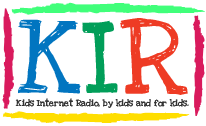
Raising Children - Creating Magical Music Moments
| Raising Children | Fostering Independance | Discipline |
| The Right Toys | Emotionally Healthy Kids | Music |
Music can positively affect your child socially, intellectually, physically, and emotionally.
Singing to your baby or toddler can strengthen the child emotionally and helps with building language development and memory skills.
Provide rhythm instruments and classical marching music to help your child with his/her motor skills.
Learn a variety of fun songs; it will help with listening and memory skills.
Provide scarves, feathers, ribbons, crepe paper streamers, turn on classical music and let them dance, sing and improvise to the music. It helps develop their timing, coordination and thinking.
Play clapping games with your child. Help them to match a variety of simple and complex rhythms. It develops aural or listening skills and thinking skills.
Play marching music in the morning. As your child is getting ready for the day, they will enjoy marching to the bath, to dress, to eat, and the strong rhythmic beat will organize him/her and help him/her accomplish the task with ease.
Purchase age appropriate tape recorders and CD players and teach your child how to use them.
Make your own rhythm instruments: fill old plastic soda bottles with beans or rice and shake away! Use pots, pans and wooden spoons to create a drum and sticks.
Group Music Lessons: Studies show that preschoolers developed early math abilities when learning a keyboard instrument. They were able to work mazes, draw geometric figures and copy patterns of two color blocks.
Private Lessons: Some scientists say that the "optimal" time for starting private music lessons is between the ages of 3 and 11. This just means it is the easiest time to start, but additional research indicates that it is never too late! So when starting your child in music lessons, make it a family activity and join them in this musical endeavor!
